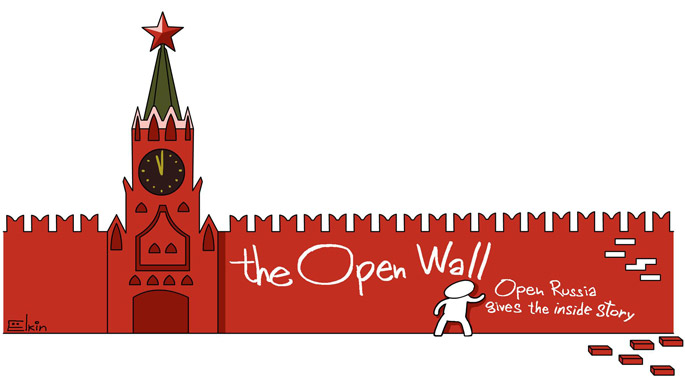Dopeheads

Dopeheads
A World Anti-Doping Agency (WADA) independent commission has found evidence of endemic state-sponsored doping in Russia, with senior Ministry of Sport officials and FSB operatives all deeply implicated.

“Your sample tested negative.”
Dopehead. A person who has done too many drugs and is a bit slow at times. “Hey dopehead, you forgot today is Monday and a work day, right.”
It will probably become a defining symbol of Putin’s Russia – FSB personnel busying themselves with the nightly swapping of urine samples through a hole in the testing laboratory wall, during the Sochi Olympics …
The deception was worthy of le Carré. “The steroids were dissolved in alcohol (Chivas for the men and vermouth for the women),” says the report. “The solution was then swished in the mouth in order to be absorbed by the bucal membrane and then spat out. Dr Rodchenkov’s research indicated that, with the laboratory technology available at the time, the detection window for the steroids in the cocktail would not exceed 3-5 days.”
Think of Rodchenkov (former director of the Anti-Doping Centre in Moscow, he has now hightailed it to the US) as the cocktail barman; and like all self-respecting barmen everywhere, his invention had to be given a name; it was “nicknamed the ‘Duchess’ cocktail after a traditional Russian drink.”
On the day the commission published its report, ex-FSB operative Vladimir Putin released a statement lambasting political interference in sport; the president referenced the 1980s, when mutual political accusations prevented a whole host of athletes from competing in the Moscow and Los Angeles Olympics: “Many Soviet and American athletes and athletes from other countries were caught up in this campaign of reciprocal boycotts and lost the chance to add their names to world sporting history,” he lamented. “Their years of long and hard effort and training were in vain.” In a now-familiar riff, Putin spoke out against any repeat scenario, recalling the manner in which he’d previously attempted to prove the “absurdity” of Western sanctions: mutually beneficial trade (so went his argument) shouldn’t be restricted on political grounds, thereby causing damage to businesses and consumers. The formula “it’s nothing personal, just business” has now effortlessly metamorphosed into “it’s nothing personal, just sport.”
Even taken at face value, Putin’s injunction against the mixing of politics and sport is far from convincing. As political analyst Vladislav Inozemtsev asserts, “Modern sport and modern statehood are practically inseparable, and this is particularly apparent when that selfsame notion of ‘statehood’ becomes a national idea. Sport is seen as a manifestation of strength and power – something every country naturally wants to exhibit; and the more inclined to authoritarianism the country happens to be, the more strongly this manifests itself.”
Nor is the close link between sport and politics denied by pro-regime analysts. The political scientist Fyodor Lukyanov, who is close to the Kremlin, acknowledges that Moscow’s response to a harsh doping decision from the IOC could be asymmetric: “We can’t exclude the possibility that the government may try to restore the country’s damaged image by embarking on a military adventure akin to its campaign in Syria.”
When the FSB’s unenviable role in the affair came to light, some independent Russian commentators responded with merciless mockery. Activist Roman Dobrokhotov: “I suggest they replace the Dzerzhinsky statue on Lubyanka Square with our very own Manneken Pis.” Journalist Katerina Gordeyeva: “So basically it’s just like the movies: one guy pisses into a jar and a second guy replaces the jar with another jar that a third guy’s pissed in? Deary me, is this what they’re spending our taxes on?”
Others, admittedly, saw the doping revelations as yet further evidence of machinations by enviers and detractors in the West. Inna Gravorova: “I’d take a long hard look at what WADA’s been up to. That organisation could get charged with spreading lies and corruption.”
Central to the WADA report is a discussion of the doping fraud that marred the Sochi Olympics. For it was in Sochi that an FSB operative disguised as a plumbing contractor waited for night to fall … and passed positive urine samples through a specially-drilled “mouse hole” into an adjacent “operations room,” where they were swapped for negative ones.
Konstantin Remchukov, editor-in-chief of Nezavisimaya Gazeta, is only too well aware that the Sochi Olympics were always a pet project for Putin; they preoccupied the president’s attention to such an extent, claims Remchukov, that he failed to “keep Yanukovych in power.” For Putin’s inner circle, meanwhile, Sochi became an endless gravy train. Slain opposition politician Boris Nemtsov estimated that between $25bn and $30bn had been stolen in preparations for the Games.
In his statement, Putin took care to paint Grigory Rodchenkov as both a criminal and a “man with a scandalous reputation.” Putin is right about the latter: Rodchenkov has already admitted both to sample-swapping and to providing athletes with cocktails of banned substances. But this man had been regarded for a whole decade as one of Russia’s foremost anti-doping crusaders. Rodchenkov had proved so useful to the regime throughout this entire time that a criminal case instituted against him in 2012 was successfully hushed up. He was even awarded the prestigious Order of Friendship in the wake of the Olympics. The accompanying spiel sounds like pure mockery today – the Order was awarded for “an invaluable contribution to the development, organisation, and victory of the Russian team at the Olympic Games in Sochi.”
Perhaps Russia’s athletes are not the ones who should be denied “presumption of innocence” by the West, as it seeks to ban them from competing; there’s a breed of people in Moscow with far higher levels of toxicity. We have a government of dopeheads; to think anything else, is just taking the piss.



